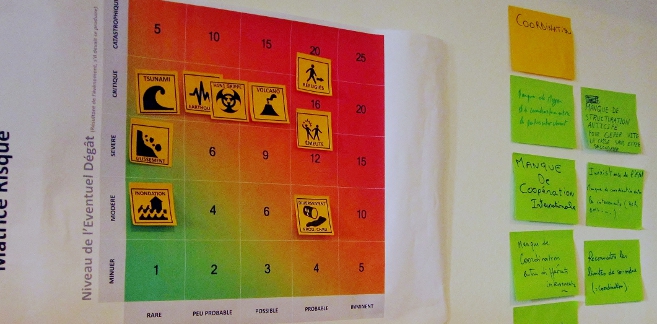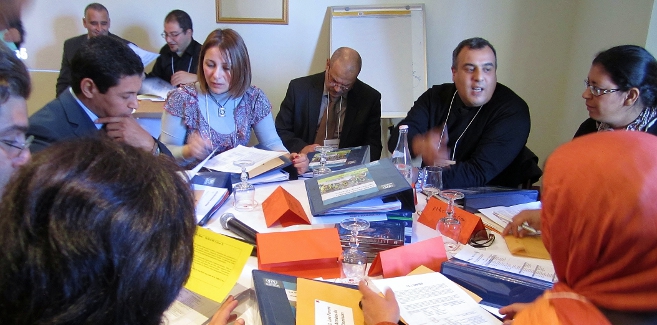United Nations High Commissioner for Refugees (UNHCR) Dec 2012

InterWorks conducted a Situational Emergency Training (SET) workshop from 11-13 December 2012 in Gammarth, Tunisia. Following the Tunisia experience with the Libyan Refugee Influx in 2011, UNHCR, in consultation with the Tunisian Government, identified a need for the national authorities and other emergency organizations to have a better grasp on international standards for assistance and protection in emergencies. The UNHCR Tunisia Country Office requested the assistance of the UNHCR Global Learning Centre (GLC) and InterWorks to develop a Situational Emergency Training (SET) specifically to provide instruction and guidance for Tunisian Government agencies in contingency planning for emergency response. The workshop is a preliminary step to working toward an Emergency Response Plan for Tunisia.
This Contingency Planning Workshop was designed to be highly practical and participatory, demonstrating the importance of contingency planning, how to do it well, and how to avoid typical pitfalls in the contingency planning process.
The workshop was designed to achieve the following objectives:
- Illustrate best practices in contingency planning for humanitarian emergencies, drawing upon UNHCR and partner experiences from the field, in addition to Inter- Agency Standing Committee (IASC) guidance.
- Show the importance of linking planning with international standards in sectoral response (food, water, sanitation, health, shelter, protection, etc).
- Demonstrate through practical exercises what is meant by scenario-based contingency planning
- Introduce practical tools, e.g. the Risk Analysis Matrix, to assess the risk of possible emergency scenarios and to prioritise planning for various emergency situations.
- Share tools and techniques to assess organizational capacities and resources in relation to humanitarian needs, and then determine who will do what in an actual emergency.
The workshop audience consisted of thirty-three participants, consisted primarily of Tunisian government authorities from 11 different ministries, who are involved with various emergency responses and most of whom had recently been involved in the response to the Libyan refugee influx in 2011. Two participants from the Tunisian Red Crescent and one from IOM were also in attendance.


